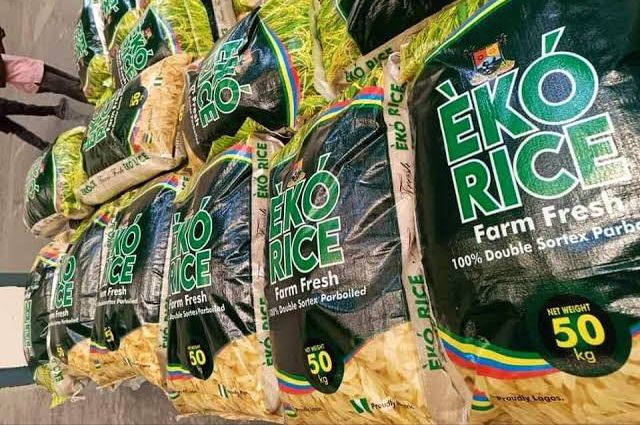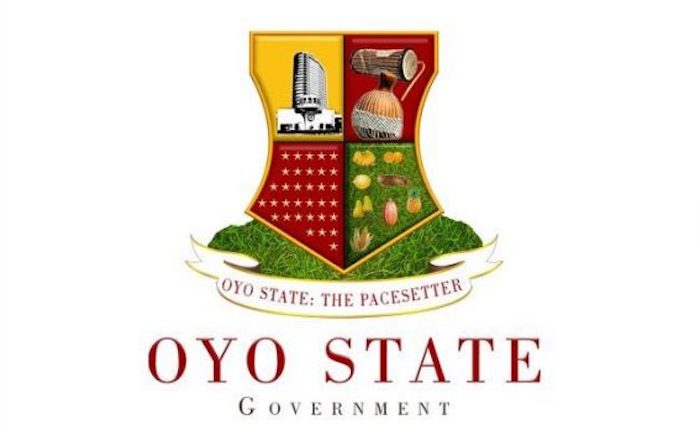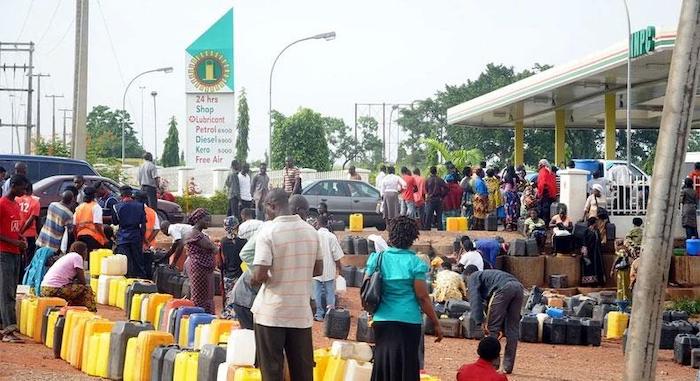Eko Rice Hits Market
Mohammed Shosanya
Rice manufactured from the Lagos State-owned 32-metric tonnes per hour Imota Rice Mill in Ikorodu has now hit the market, with the listing of the commodity for trade in Lagos Commodities and Futures Exchange (LCFE)
The development followed a formal launch of N5 billion Eko Rice Forward Contract Programme by Governor Babajide Sanwo-Olu at the floor of the commodities exchange market, UAC Building in Marina, on Wednesday.
This marks a significant milestone in the State Government’s efforts to promote agriculture and enhance food security in Lagos,according to statement made available to journalists on Wednesday by his Media Adviser, Gboyega Akosile.
The private listing of the Lagos rice excited commodity brokers, farmers and investors in the commodities market, as first 5,000 contracts issued on the exchange floor were traded at the value of N195 million.
The offer for 50kg of Eko Rice opened on June 13 at the rate of N33,000 per note, with the commodity being expected to be traded till next Monday, June 26, 2023. Tenor of the Note is 60 days.
Commodity brokers said the encouraging performance recorded by Eko Rice at first trading in the Commodities Exchange was due to its well-cleaned grains and high-grade texture, which positioned the crop for fair competition with imported rice in the market.
Sanwo-Olu said the Eko Rice Contract Programme was a game-changer launched with the objective to make Lagos a hub for agricultural production and processing in the country.
Rice, the governor noted, is a regular staple consumed by over 80 per cent of Lagos population, stressing that the Forward Contract was a key goal in the food security plan of the government to guarantee availability of the commodity at affordable price.
He said: “The N5 billion Series of N30 billion Eko Rice Contracts Programme being launched today is part of our efforts to ensure a sustainable supply of rice paddy for the smooth running of Lagos Rice Mill in Imota. The exchange market is a public-private partnership programme that will provide a platform for farmers, processors, and traders to buy and sell rice contracts at a fair price.
“The programme will also provide a guarantee for the quality and quantity of rice produced, which will enhance the confidence of buyers and sellers in the market. Leveraging the Lagos Commodities and Futures Exchange is a critical component of our plan to create a transparent and efficient market for the trading of agricultural commodities and derivatives. The Exchange has the potential to transform the agriculture sector by providing a reliable and efficient market for farmers, processors, and traders.”
Sanwo-Olu said the state government embarked on the development of rice value chain through capacity building for farmers, and provision of inputs and infrastructure in rice production centres across Lagos.
This effort, the governor said, has scaled up local paddy production by 63.5 per cent, while creating over 2,620 direct and indirect jobs.
Sanwo-Olu said the intervention had also stimulated economic activities and facilitated improved livelihood in rice producing communities.
He said the Lagos-owned Imota Rice Mill required 200,000 tonnes of paddy yearly, stressing that the Commodities Exchange would create a steady market for the 2.5 million bags of 50kg rice that would be turned out from the mill annually.
“Today’s Bell Ringing is to herald the listing of rice paddy contracts for the Lagos Rice Mill, Imota for open transactions. This highlights the opportunities available in rice processing and other value chains of the Lagos agriculture sector. It will draw attention of local and foreign investors to the Lagos Rice Mill forwards contract, and project the role of the Capital Market in driving development in Lagos commodities ecosystem. We are committed to expanding the programme to cover other commodities, such as cassava, maize, and vegetables,” Sanwo-Olu said.
LCFE Managing Director, Akinsola Akeredolu-Ale, said rice was among the 13 crops approved by Securities and Exchange Commission (SEC) for trading at the commodities exchange market, stressing that the listing of Eko Rice was a watershed moment in the capital market.
Akeredolu-Ale said collaboration with the Lagos State government would drive paddy supply to the Imota Rice Mill, integrate stakeholders in rice value chain across the country and standardise of head rice and paddy rice in Lagos.
He said: “LCFE will provide an opportunity for investment in the rice value chain through the creation, onboarding and listing of commodities instruments for paddy aggregation and trading, while also providing opportunities for rice distributors and stakeholders to trade on the Exchange through capital market operators. There is no credit risk associated with the issuer of the Notes, as the underlying commodity assures return on investment.”
Sanwo-Olu tolled the open bell, signifying the formal commencement of trading of the contracts for the commodity. The governor was joined by his deputy, Dr. Obafemi Hamzat, and other top government functionaries.
Johnvents Industries Limited, an agro-processing firm, became the first investor to procure 5,000 Forward Contracts worth N195 million on the Exchange floor.
LCFE Chairman of Board of Directors, Chief Onyenwechukwu Ezeagu, said the partnership complemented the objectives of the Exchange in transforming the commodities market by redefining practice norms and catalysing economic growth in the country.








